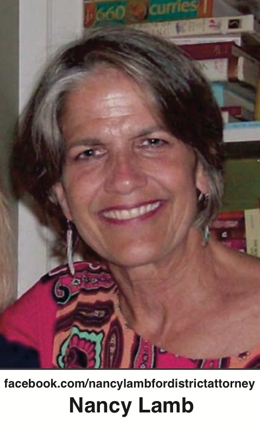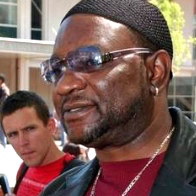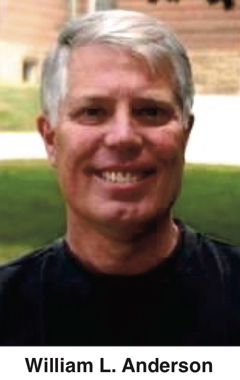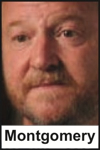Rascals case in brief
In the beginning, in 1989, more than 90 children at the Little Rascals Day Care Center in Edenton, North Carolina, accused a total of 20 adults with 429 instances of sexual abuse over a three-year period. It may have all begun with one parent’s complaint about punishment given her child.
Among the alleged perpetrators: the sheriff and mayor. But prosecutors would charge only Robin Byrum, Darlene Harris, Elizabeth “Betsy” Kelly, Robert “Bob” Kelly, Willard Scott Privott, Shelley Stone and Dawn Wilson – the Edenton 7.
Along with sodomy and beatings, allegations included a baby killed with a handgun, a child being hung upside down from a tree and being set on fire and countless other fantastic incidents involving spaceships, hot air balloons, pirate ships and trained sharks.
By the time prosecutors dropped the last charges in 1997, Little Rascals had become North Carolina’s longest and most costly criminal trial. Prosecutors kept defendants jailed in hopes at least one would turn against their supposed co-conspirators. Remarkably, none did. Another shameful record: Five defendants had to wait longer to face their accusers in court than anyone else in North Carolina history.
Between 1991 and 1997, Ofra Bikel produced three extraordinary episodes on the Little Rascals case for the PBS series “Frontline.” Although “Innocence Lost” did not deter prosecutors, it exposed their tactics and fostered nationwide skepticism and dismay.
With each passing year, the absurdity of the Little Rascals charges has become more obvious. But no admission of error has ever come from prosecutors, police, interviewers or parents. This site is devoted to the issues raised by this case.
On Facebook
Click for earlier Facebook posts archived on this site
Click to go to
Today’s random selection from the Little Rascals Day Care archives….
Click for earlier Facebook posts archived on this site
Click to go to
Today’s random selection from the Little Rascals Day Care archives….
Nancy Lamb: ‘Would you want someone like me?’
 June 3, 2014
June 3, 2014
“I want all of you to ask yourselves: If you were to find yourself in the unfortunate circumstance of being the victim of a crime, who would you want representing your interest in the criminal justice system?
“Would you want someone like me, with 30 years experience as a veteran prosecutor, a person who has prosecuted every kind of criminal case there is?
“Or would you want someone like my opponent, whose entire criminal experience comes as in the role of being a criminal defense attorney, defending criminals who commit crimes against the people of the 1st District?”
– Little Rascals prosecutor Nancy Lamb, now a candidate for district attorney, comparing herself – most favorably! – with incumbent Andrew Womble
Lamb won the Democratic nomination for DA in last month’s primary and will face Republican Womble in the general election. Although her campaign website boasts that she has been “nationally recognized for her work with child abuse,” it somehow neglects to mention her star turn in one of the country’s most publicized “satanic ritual abuse” prosecutions. Fortunately, the five months between now and Nov. 4 should provide ample opportunity for her to address that issue.
Exoneree ‘eventually got the death penalty’

newsobserver.com
Darryl Hunt in 2007.
March 14, 2016
Darryl Hunt, imprisoned for more than 19 years for a murder he did not commit, was found dead in a car in Winston-Salem early Sunday.
“In 1984 at age 19, Hunt was charged with the rape and murder of a newspaper copy editor….” Read more here.
“Hunt was exonerated in 2004 after DNA evidence led police to Willard Brown, who confessed to the killing, and pardoned by then-Gov. Mike Easley.” Read more here.
He was awarded a settlement of more than $1.6 million in 2007 and founded the Darryl Hunt Project for Freedom and Justice, an advocacy group for the wrongfully convicted.
“But Hunt was also haunted by his experiences, said those who knew him. He would use ATMs daily, not so much to get money but so he could create a time-stamped receipt and an image recording his location.” Read more here.
“The trauma of wrongful convictions, years in prison, and the responsibilities he took on after he was free wore Hunt down, (his longtime attorney, Mark Rabil) said.
“ ‘In the long run, he eventually got the death penalty,’ Rabil said.” Read more here.
– From “Darryl Hunt, wrongly convicted of murder, found dead” by Lynn Bonner in the News & Observer (March 13)
Exoneration – what a beautiful word. Misleadingly beautiful for those who forever bear the wounds of wrongful conviction.
In 2007 a New York Times study of 137 DNA exonerees showed that “most of them have struggled to keep jobs, pay for health care, rebuild family ties and shed the psychological effects of years of uestionable or wrongful imprisonment.
Another study suggests New York state parolees experienced “a 2-year decline in life expectancy for each year served in prison.”
Perhaps most chilling: Darryl Hunt surely ranked as one of exoneration’s most heartening success stories.
![]()
System that wronged Betsy Kelly rewarded Nancy Lamb
 April 5, 2015
April 5, 2015
William L. Anderson, professor of economics at Frostburg (Md.) State University, writes widely in opposition to big government. He has a particular aversion to overreaching prosecutors such as Mike Nifong and Nancy Lamb.
Anderson recently spoke to a North Carolina State University audience on “The Economic Calculation of Prosecutorial Abuse,” and afterward he shared these thoughts on how justice goes bad:
“The real problem is that people in the courts and law enforcement don’t have ‘fences’ that limit their behavior and also increase their liability. If the chances that they will face any meaningful sanctions for lying and lawbreaking are almost nil, then we can expect two things:
- People in those lines of work are going to cut corners, to lie (even if they really do believe the person is guilty) and to manufacture ‘evidence,’ and
- The kind of people who are most likely to cut corners are going to self-select into these lines of work…..
“Take Nancy Lamb, for example. While she narrowly lost the DA election last year, nonetheless she has ridden the Edenton fame for years and has done well in her career. It helped her gain money and what the late Murray Rothbard described as ‘psychic profit.’ She suffered no consequences that I know despite the horrendous train-wreck damage she caused not only the defendants, but also the taxpayers of North Carolina…. Lamb is protected by prosecutorial immunity and also by a media and legal culture that bows down to prosecutors and judges….
“A society that accepts and honors this kind of dishonest and destructive behavior is doomed. There is no other way to put it. The people from Edenton could never get back their lives; Betsy Kelly pleaded nolo contendere because she knew the North Carolina ‘justice’ system was utterly and hopelessly corrupt….”
Also seemingly immune to appropriate consequences: Chris Bean, who went on to a long career on the bench despite having provided flagrantly prejudicial testimony against former client Bob Kelly.
N.C. law stacked deck against defendants
Oct. 17, 2011
The two largest ritual-abuse day-care cases – Little Rascals in Edenton and McMartin in California – bore many similarities but McMartin resulted in not a single conviction.
 I asked Mark Montgomery, who in 1995 successfully argued Bob Kelly’s case before the North Carolina Court of Appeals, why that might have been:
I asked Mark Montgomery, who in 1995 successfully argued Bob Kelly’s case before the North Carolina Court of Appeals, why that might have been:
“Each state has its own criminal laws, rules of procedure and evidence, etc. … Several features of the law in North Carolina gave prosecutors an advantage.
“First, the prosecution interviewed all the children attending Little Rascals Day Care. Most said they had seen no abuse. The law allowed the prosecution to withhold those interviews from the defense. And the defense was not allowed to interview the children. So all the jury heard were the stories of the 12 children who were the subject of indictments.
“Second, the law allowed the state’s expert witnesses to testify that they believed the children’s claims.
“Third, the defense was not allowed to conduct its own physical or psychological examinations of the children.
“Fourth, North Carolina had (and has) very liberal rules for the admission of hearsay by children in these cases. Almost anything a child says out of court can be used by the jury as substantive evidence of guilt. An effective prosecution strategy was to enlist the parents to elicit allegations of abuse. For months, parents, who were told their children had been abused, pleaded with their children to ‘disclose.’ Some eventually did. The prosecution then called the parents as witnesses to testify to what their children said, even if the children themselves did not testify.”











0 CommentsComment on Facebook